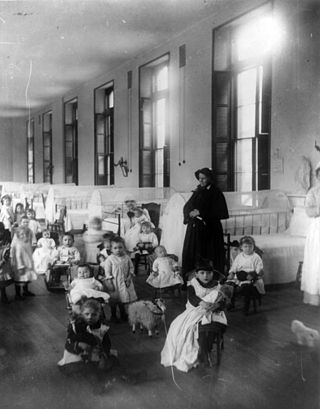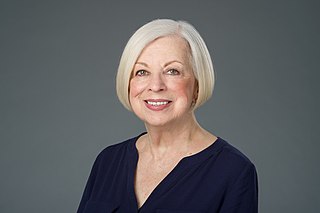Jane Jeong Trenka | |
|---|---|
| Born | Seoul, Korea |
| Education | Augsburg University |
| Occupation(s) | Activist, writer |
Jane Jeong Trenka is a Korean American activist and an award-winning writer. [1] She is the president of the organization TRACK (Truth and Reconciliation for the Adoption Community of Korea).
Trenka was born in Seoul, Korea in 1972. When she was six months old, Trenka and her sister were adopted into a white family in rural northern Minnesota. Her Korean mother found her daughters in 1972, shortly after the girls were sent to the U.S. and before they were legally adopted. Trenka reunited with her birth mother in Korea in 1995 when she was 23. [2] In 2004, she returned to live in Korea. While applying for a visa in 2006, Trenka discovered that the Korean adoption agency that had overseen her adoption had lied, both about her background and about the people who were going to adopt her. [3] Trenka became an activist for standard and transparent adoption practices to protect the human rights of adult adoptees, children, and families. She officially repatriated to South Korea in 2008. [3]
Trenka received a degree in music performance from Augsburg University in Minneapolis, Minnesota [4] and became a piano teacher in Minnesota before her return to Korea. [2]
While studying at Augsburg University, Trenka was consistently stalked, and she has spoken publicly about her experience in order to raise awareness to the issue, including discussing the incident in her book The Language of Blood. [5] Her experiences were adapted for an episode of the Investigation Discovery series Obsession: Dark Desires . [6]
In 2013, Trenka attended Seoul National University to pursue a degree in public administration. [2]
She has written two memoirs on her experiences with international, transracial adoption: The Language of Blood and Fugitive Visions: An Adoptee's Return to Korea.

Adoption is a process whereby a person assumes the parenting of another, usually a child, from that person's biological or legal parent or parents. Legal adoptions permanently transfer all rights and responsibilities, along with filiation, from the biological parents to the adoptive parents.
The international adoption of South Korean children was at first started as a result of a large number of orphaned mixed children from the Korean War after 1953, but later included orphaned Korean children. Religious organizations in the United States, Australia, and many Western European nations slowly developed into the apparatus that sustained international adoption as a socially integrated system. This system, however, is essentially gone as of 2020. The number of children given for adoption is lower than in comparable OECD countries of a similar size, the majority of adoptees are adopted by South Korean families, and the number of international adoptees is at a historical low.
Closed adoption is a process by which an infant is adopted by another family, and the record of the biological parent(s) is kept sealed. Often, the biological father is not recorded—even on the original birth certificate. An adoption of an older child who already knows their biological parent(s) cannot be made closed or secret. This used to be the most traditional and popular type of adoption, peaking in the decades of the post-World War II Baby Scoop Era. It still exists today, but it exists alongside the practice of open adoption. The sealed records effectively prevent the adoptee and the biological parents from finding, or even knowing anything about each other. However, the emergence of non-profit organizations and private companies to assist individuals with their sealed records has been effective in helping people who want to connect with biological relatives to do so.
The Minnesota Transracial Adoption Study examined the IQ test scores of 130 black or interracial children adopted by advantaged white families. The aim of the study was to determine the contribution of environmental and genetic factors to the poor performance of black children on IQ tests as compared to white children. The initial study was published in 1976 by Sandra Scarr and Richard A. Weinberg. A follow-up study was published in 1992 by Richard Weinberg, Sandra Scarr and Irwin D. Waldman. Another related study investigating social adjustment in a subsample of the adopted black children was published in 1996. The 1992 follow-up study found that "social environment maintains a dominant role in determining the average IQ level of black and interracial children and that both social and genetic variables contribute to individual variations among them."
Sandra Wood Scarr was an American psychologist and writer. She was the first female full professor in psychology in the history of Yale University. She established core resources for the study of development, including the Minnesota Transracial Adoption Study and the Minnesota Adolescent Adoption Study. She served as president of multiple societies including the Association for Psychological Science and was honored with multiple awards including the James McKeen Cattell Fellow Award. She was also active in the development of commercial childcare. Her work with twins in the 1960s revealed strong genetic influences on intellectual development. One of her key findings was that this differed with race and socioeconomic status (SES), with poor and non-white children showing less genetic influence on their IQ and more environmental influence. She demonstrated a successful intervention in premature infants, showing that stimulation improved their health and developmental outcomes.
In the United States, adoption is the process of creating a legal parent-child relationship between a child and a parent who was not automatically recognized as the child's parent at birth.
Interracial adoption refers to the act of placing a child of one racial or ethnic group with adoptive parents of another racial or ethnic group.
Sun Yung Shin is a Korean American poet, writer, consultant, and educator living in Minneapolis, Minnesota.
"Gotcha Day" is a term for the anniversary of the day on which a person or a pet joins a family by adoption. It is also called "Homecoming Day", "Family Day", or "Adoption Day", although the date may be different from date on which the legal adoption becomes final. Gotcha Day is often associated with annual rituals or celebrations, much like a birthday. The tradition, and especially the word gotcha, is considered offensive by some adoptees.
Katie Hae Leo is a Korean American playwright, poet, essayist and creative nonfiction writer. Her writing has been published in Water~Stone Review, Asian American Poetry & Writing, Kartika Review, 60 Seconds to Shine: One-minute Monologues for Men, MN Women's Press, and Utne Reader. Her stage work includes Four Destinies, first produced by Mu Performing Arts, and N/A, a solo piece the debuted at Asian Arts Initiative in Philadelphia and was remounted at Dreamland Arts in Saint Paul. The themes in her work involve place, identity, and her experience as a transracial Korean adoptee. Her influences include Suzan-Lori Parks, Young Jean Lee, and Kristina Wong.
Han Yujoo is a South Korean writer. Her novels portray not so much the fate of people embroiled in some kind of conflict as their psychological state when they contemplate a situation or idea. She focuses on recording spontaneous thoughts or flashbacks, rather than on describing something accurately or developing a dramatic arc. In this absence of a clear plot, the reading experience consists mostly of following the author’s thought process. This is why Han’s work can be considered an example of the French nouveau roman or antinovel.
A transracial person is one who identifies as a different race than the one associated with their biological ancestry. They may adjust their appearance to make themselves look more like that race, and may participate in activities associated with that race. Use of the word transracial to describe this is new and has been criticized, because the word was historically used to describe a person raised by adoptive parents of a different ethnic or racial background, such as a Black child adopted and raised by a White couple.
kimura byol lemoine is a Korean-born, Belgium-raised activist, feminist and artist.
Julia Chinyere Oparah, formerly Julia Sudbury, is a professor and department chair of Ethnic Studies at Mills College in Oakland California, where she also played a major role in establishing its Queer Studies Program. She is an activist-scholar, a community organizer, and an intellectual focused on producing relevant scholarship in accompaniment to social justice movements.
Birth mothers in South Korea (international adoption) refers to the group of biological mothers whose children were placed for adoption in South Korea's international adoption practice. The decades-long phenomenon of international adoption in South Korea began after the Korean War. In the years since the war, South Korea has become the largest and longest provider of children placed for international adoption, with 165,944 recorded Korean adoptees living in 14 countries, primarily in North America and Western Europe, as of 2014.
It is uncommon for Korean adoptees to be deported from the United States. Due to the institutional and parental failure to grant and apply for adopted children's citizenship, South Koreans adopted by American families prior to 1983 were left vulnerable to deportations, and many suffered from a lack of access to other resources American citizens have.

Bernice Gottlieb was an early leader in the trans-racial adoption movement in the United States. In later years, she led a residential real estate firm and authored several books, including one on adoption.
Korean American children's literature has often been included in the study of the broader Asian American children's literature category. There are varying definitions of “Korean American children’s literature,” as this is a category that has been written by both non-Koreans and Korean Americans as well as by Koreans and Korean Americans. Scholars have outlined two main criteria to categorize these books. These include the presence of at least one Korean American or Korean character, and the identification of the author as a resident of the United States. This category represents a variety of Korean American experiences, including immigration to the United States, misrepresentation, interracial Korean adoption narratives, and multiracial Korean American children narratives. Since the 1970s, numerous authors have contributed to the genre of Korean American children's literature.

Return to Seoul is a 2022 drama film written and directed by Davy Chou, and starring Ji-Min Park as a 25-year-old French adoptee who travels to South Korea, seeking her biological parents.